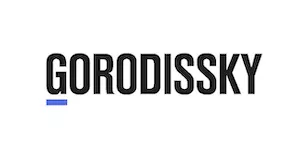This year events relating to global pandemics of COVID-19 for sure had impact on various issues of human civilization. Intellectual property specifics in the life sciences industry is not an exception. In this article we will cover some new trends emerging as result of COVID-19 emergence within the context of Russia, reflecting various issues caused by COVID-19.
ONLINE SALES OF MEDICINES AND TRADEMARK PROTECTION
Initially on March 2020, the Russian President allowed online sales of over-the-counter medicines. Drugstores required state permits (licenses) to be engaged in such sales.
As such, the Presidential decree provided that the Russian Government should strengthen control over compliance with the requirements of the legislation of the Russian Federation in the sphere of circulation of medicines, including retail trade in medicines carried out remotely, including the requirements to prevent the circulation of falsified, counterfeit, substandard and unregistered medicines, and, if necessary, submit proposals for amendments to the legislation of the Russian Federation aimed at increasing the responsibility of pharmacy organizations in the implementation of on-line retails sale of medicines.
Subsequently, on April 2020 as result of the legislative developments, the Russian President signed Federal law No. 105-FZ "On amending article 15.1 of the Federal law of information, information technologies and protection of information and the Federal law on medicines circulation". The suggested amendments allowed retail sale of medicines by pharmacies with the exception of:
- prescription medicinal products,
- narcotic medicinal products and psychotropic medicinal products,
- as well as alcohol-containing medicinal products with a volume fraction of ethyl alcohol greater than 25 percent.
The amendments provided for the necessity of pharmacies to have state permits for pharmaceutical activities and the corresponding permission of the state regulator obtained within the special procedure.
In terms of enforcement, the amendments provided blocking of the websites that infringe the established requirements – e.g. offer for sales medicines which are not subject to online retail trade or offers by entities that do not have state permits. Given that falsified or counterfeit medicines are not subject to online retail trade as such, the blocking mechanism shall provide more strength in the enforcement against unauthorized use of trademarks and related IP assets in the online sales of medicines.
Nevertheless, in case of unauthorized use of trademarks and other IP in course of online sales of medicines brand owners in Russia shall not forget about already existing mechanisms of online enforcement.
The first and so-called traditional enforcement route to fight online IP infringement is civil actions to be taken with the court. The recent practice shows that even simple screen-shots and not the notarized ones should normally be accepted by courts as a proper evidence to confirm the infringement.
The law allows struggling against both the principal infringers – i.e. the ones that selling counterfeit online, and other participants who assist or make the IP infringement possible. Those other participants could be the owners of the domain name, holders of the website and hosting providers. Depending on the scope of the involvement and the role they play, different remedies and enforcement tools can be applied. Monetary compensation and injunctive reliefs are both possible to claim within the course of a civil action.
Another online enforcement option is applying to the registrar of the domain names. If the domain is not duly verified and the holder of the domain name fails to provide the information upon verification request of the domain name shall be undelegated and therefore access to the infringing website shall be terminated.
And, quite a new and not that common legal route to fight online IP infringement is prosecutors actions. If the website selling counterfeits the right holder may file a petition with the prosecutor's office. The actions ends with court decision to block all the website or certain pages only.
ADVERTISING LAW CHALLENGES
As such, Federal Law of 13.03.2006 No. 38-FZ "On advertising" sets both the general and specific requirements relating to advertising of medicines. In particular, such advertising shall be fair, true with regard to the consumer features of the advertised medicine. Furthermore, advertising about the properties and characteristics, including methods of application and use, of medicines is allowed only within the limits of the indications contained in the instructions for the use (package inserts).
The emergence of COVID-19 and subsequent references to COVID-19 related issues in advertising resulted in concerns from the Federal anti-trust authority (FAS), that acts as the regulator for advertising in Russia.
For instance, in February 2020, FAS officials announced it will combat against use of promises to treat COVID-19 in the advertising of medical services.
On April 2020, FAS launched several cases against veterinary clinics that offered services on diagnosis, vaccination and treatment of COVID-19 for cats and dogs.
In its statement, FAS noted that in Russia at that time there were veterinary drugs registered for the prevention of immunization against coronavirus infection only for cattle. Thus, as FAS noted, there was no registered system for diagnosing, vaccinating and treating coronavirus for domestic animals, including cats and dogs, in Russia.
Therefore, FAS considered that there are potential breaches in advertising of such services.
With regard to pharmaceutical advertising specifically, of interest is the recent case № 08/05/24‑10/2020 where FAS held invalid to use indication that the specific medicine may be applied against COVID-19. The advertising disseminated via radio indicated that:
- increasing number of cases of new coronavirus that causes dangerous pneumonia;
- transmittance of the virus from person to person;
- high risk of infection;
- reference to studies showing that the advertised medicine is active even against coronavirus;
- the advertised medicine is a broad-spectrum antiviral agent for the protection of children and adults;
- warning with regard to contraindications and the indication of the necessity to have advice from medical professional.
FAS analyzed the instruction for use of the advertised medicine and cited that the drug is an antiviral agent that specifically suppresses in vitro influenza a and B viruses (Influenzavirus A, B), including highly pathogenic subtypes a (H1N1)pdm09 and F (H5N1), as well as other viruses that cause acute respiratory viral infections (ARVI) (Coronavirus associated with severe acute respiratory syndrome (SARS). While the indications for use of the advertised drug were: prevention and treatment in adults and children: influenza A and B, other ARVI; complex therapy of recurrent herpetic infection; prevention of postoperative infectious complications; complex therapy of acute intestinal infections of rotavirus etiology in children older than 6 years.
During consideration of the case FAS sent a request to the Ministry of health (MOH). According to the MOH response, the instructions for medical use of the advertised drug in the sections "Indications for use" and "Method of use" do not contain information about an infectious disease caused by coronavirus 2019-nCoV and that was no pending amendments before the MOH institutions to expand the regulatory documentation for the advertised medicine.
In this regard, FAS considered that the advertising reports about the properties and characteristics of advertised drug outside / beyond the scope of the information contained in the duly approved instructions for use of the drug. In this regard, FAS concluded that at the time of dissemination of the advertising message at issue, the advertising message contained the information on effect of the advertised drug against the new coronavirus that went beyond the indications specified in the instructions for use of this drug, and before making the appropriate additions to the instructions – thus such reference to the effect was premature.
FAS also referred to the Advertising Law provision according to which it is forbidden to refer to untrue information on the results of trials. The MA holder of the advertised medicine provided evidence that the Chinese scientists conducted in vitro studies of the activity of a number of drugs in relation to the new coronavirus, including the advertised drug. Considering the results of these studies, the advertised drug was included by the State Committee of China for health in treatment recommendations with regard to COVID-2019 in China ("the Program of diagnostics and treatment of pneumonia caused by a novel coronavirus 2019-nCoV" that published on the website of the National Commission of health of the PRC).
Under those circumstances, FAS considered that was no breach of the Advertising Law provision with regard to the requirement of true information on trial results. While for the breach of the Advertising Law requirement to adhere to the scope of the information of the instructions for use, FAS upheld its conclusion on the breach of Advertising Law. The case demonstrates attention by FAS with regard to use of references to treatment of COVID-19 in the advertising materials.
ON-GOING NECESSITY OF IP PROTECTION AND FIGHT AGAINST IMITATIONS
Indeed, COVID-19 and other viruses stimulate pharmaceutical companies in research, development and production activities. Consequently, newborn medicine requires proper IP protection to be successive and competitive on the market. Getting a patent for a new pharmaceutical product and having trademark protection significantly helps to be exclusive, promote the product and fight imitations.
The imitation issue keeps being a serious concern, especially for manufacturers of the popular medicines. Manufacturers of Dietary Supplements (or BADS – Biologically Active Dietary Supplement) often pretend to have some treatment effect. At the same time, the law and practice clearly says that BADS shall not, in any manner, be perceived as a remedy having medical treatment. This is a key difference between BADS and medicine product.
Despite those imperatives, FAS has initiated a number of cases where BADS were advertised as a remedy having medical effect. In the recent years, however, the situation has become better because both the advertiser and the advertising distributor should be liable for dissemination of that kind of advertising.
Another sign of imitation issue is that BADS using similar names as medicines have. Normally, those cases is considered from unfair competition perspective, because consumers can easily be misled when face BADS with the name and design similar to the medicines. In the recent years, FAS has revealed and terminated a number of such cases where manufacturers of BADS copied the names of popular medicines and tried to exploit the fame and good reputation of the those medical products.
Moreover, the authorities keeps working on the origin of this problem. The draft regulation aimed at monitoring and prohibiting the registration of BADS with the names similar to the medicines is considered and hopefully will be adopted soon.
CONCLUSION
COVID-19, as forcemajeure event, showed that nowadays the market and legal context is changing very fast.
The legislative, lawenforcement and other authorities have been effectively monitoring the situation, adopting new regulations and taking appropriate actions to keep the market landscape safe and steady.
Pharmaceutical companies, IP holders and other key players are definitely an important part of this process and thus they can effectively participate in and mitigate concerns brought by COVID-19.
Originally Published by Gorodissky, December 2020
The content of this article is intended to provide a general guide to the subject matter. Specialist advice should be sought about your specific circumstances.

